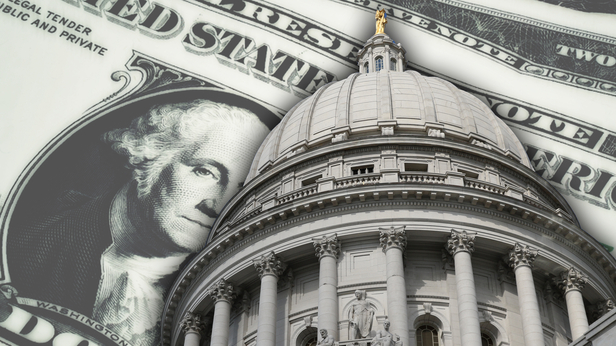
What to Watch: Spending, Taxes, Crime, Education and Elections
As we head into a new legislative session with the same split control of the executive and legislative branches, it’s a fair bet that we won’t see much substantial in the way of reform. The governor will block any legislative effort to shrink government, so perhaps the best we can hope for is something close to the status quo.
The 100-day mark is often the timeline elected officials set to measure substantial accomplishments in a new session. A better gauge might be the first 180 days during which the first flurry of session legislation will be introduced, and the state budget will (likely) be signed.
These are the 5 areas we will be watching in the next 180 days.
Spending
What to watch: How high it will go
The state has a huge surplus, currently estimated at $6.6 billion, a number that could go higher once spring revenue estimates are in. We talk about this figure as a “surplus” but that obscures the fact that what we are really talking about is excess tax collections. One obvious downside to taxpayers is that they paid more than necessary to run their already-bloated government. A worse downside? The huge slush fund/surplus protects both branches from having to cut – or even work to control – spending.
As we’ve reported, the state budget has been on a trajectory that has far outpaced household income growth and inflation. The current state budget, crafted by a republican legislature and signed by a democratic governor, spends over $89 billion, about $6 billion more than the previous budget, and over $15,000 for every person in the state. For comparison, in 2001, the budget spent only about $9,000 per person, which adjusted for inflation is roughly $13,800 in 2021 dollars.
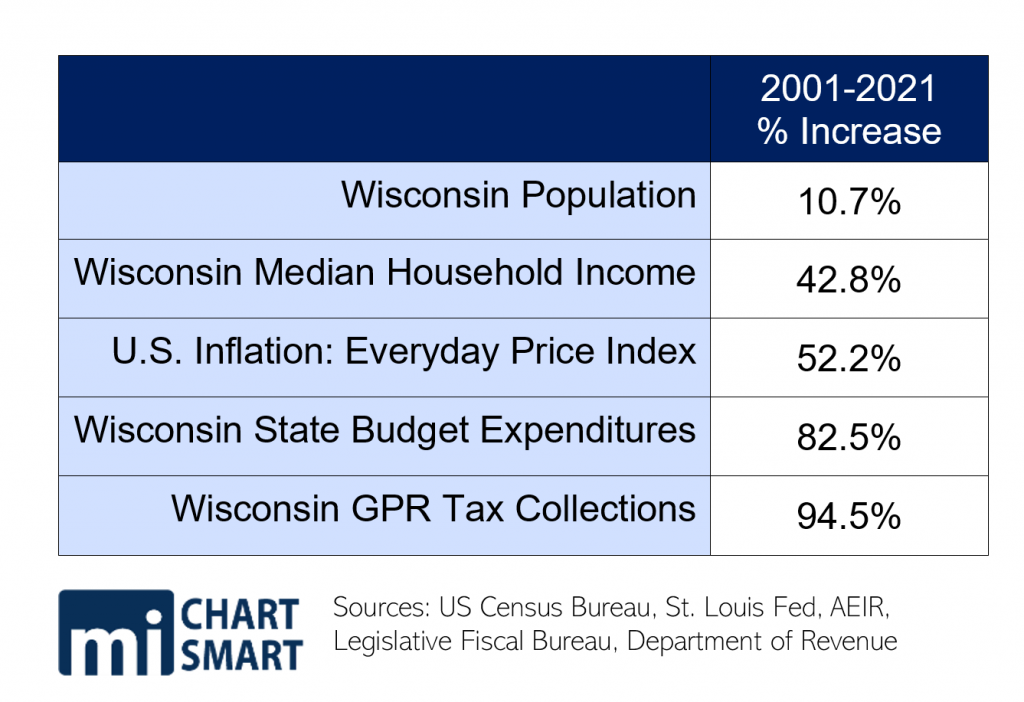
In the next 180 days, we will see a new 2-year spending plan. If the budget increases at the same rate as the previous budget, the state budget will top $95 billion, about $16,000 per person.
The governor has pledged to increase funding for a host of things, including education and municipal and county governments. The legislature has opened the door for increased spending in these areas as well. If ever there were a time to dial back spending – or even just hold the line – it’s this moment.
In the past 3 years, nearly $20 billion federal pandemic dollars have flowed into the state, and no surprise, have been used to grow government. One-time funds purportedly meant to help the state deal with a health emergency were used for continuing expenditures, and now we are hearing fairy tales about “funding cliffs” and “cuts” from elected officials as they gear up for demanding more. They’re counting the pandemic aid as part of their base.
For context on just how huge the $19.9 billion in pandemic funds that went to governmental units really is, that’s more than all of the state taxes collected in 2021 – all the income taxes, sales taxes, corporate taxes, excise taxes and other miscellaneous taxes. It’s more than the total the state collected in income taxes in the past 2 years. It’s about $3,400 for every person in the state.
It’s such an embarrassment of riches that governments – the same governments that claim they’re facing the most dire of fiscal cliffs – are using it to build skate parks, to bulk up library “Equity Collections” with LGBTQ+ content for children, and to hire government employees to look for more government money to replace the one-time pandemic funds once they’re spent.
Some groups, notably the Policy Forum, are urging the use of the surplus to “mend relationships” by spending more money, we urge elected officials to remember that taxpayers have footed the bill for the unprecedented federal handouts, and they foot the bill for the rapidly growing state budget, local budgets, while their own budgets have been slammed by inflation caused by out-out-of-control government spending.
The taxpayers financing the government largess don’t have the luxury of expanding their budgets to underwrite ever-growing wish lists like their elected officials do. At a time when families across the state are struggling to make ends meet because of generationally high inflation, their elected officials should be returning excess tax collections, cutting taxes, and slimming down the budget.
Taxes
What to watch: How small tax cuts will be, if limits on property taxes are relaxed
We’ve long advocated for cutting income taxes across the board for all taxpayers and moving to a flat tax. The current surplus gives the state the breathing room to implement a flat tax this session. This would move Wisconsin to a more fair, less complex tax system, something that more states, including many of our neighbors, are moving to.
Evers seems willing to use something under 10% of the surplus to target tax relief to a limited number of taxpayers but will almost certainly propose the same tax hikes he’s championed in the past, including on famers, manufacturers, and food processors. Meanwhile, the assembly has set a goal of a tax cut of at least half the surplus and the senate is moving in the direction of a flat tax which the governor has declared dead on arrival, setting up another income tax battle.
The governor has also said he would like to allow local governments to increase taxes; the legislature seems – in spite of the absurd ways they’ve spend pandemic funds across the state – to be sensitive to locals’ demands. Incessant demands to increase spending and unrelenting claims of cries of poverty and fiscal cliffs are pressuring legislators to sacrifice tax cuts for new spending. Despite claims local governments have been starved of cash, in the last 15 years, under limits designed to control property taxes, the levy still increased 44%. And as we reported, that number understates the increase because of several tax shifts from the levy to the general fund.
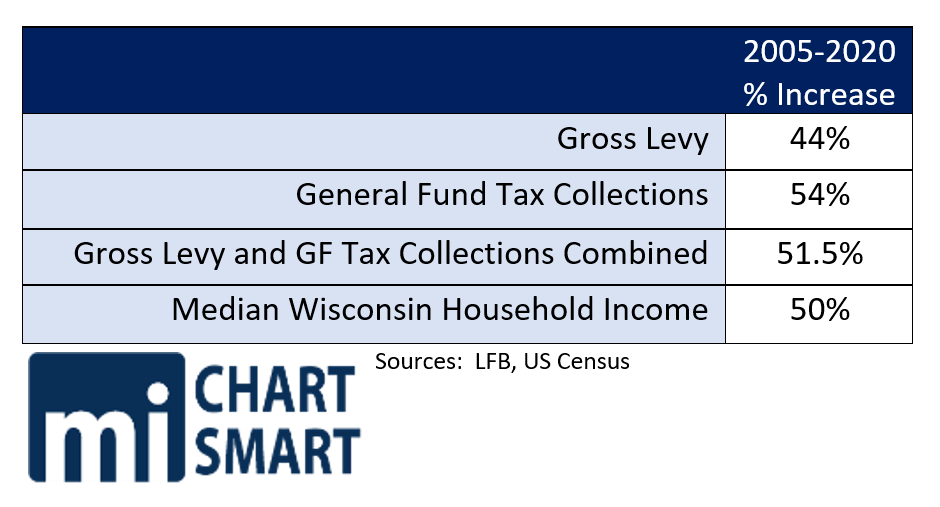
Conservatives must be ready to fight for taxpayers, returning excess tax collections through tax relief, and guard against substituting a tax shift for a real tax cut.
If a time when the state has a nearly $7 billion surplus, plus billions of unspent pandemic funds still sitting in government coffers while families are struggling under the weight of government-caused inflation is not the time to move to a flat tax, one questions when or if the legislature will ever consider the time right.
Crime
What to watch: Whether the governor will heed the public on public safety, and the Perry trial in Dorow’s court
The legislature and the governor are in profoundly different places on the issues of crime, public safety and our judicial system. With violent crime rates continuing to increase in Wisconsin, and little transparency in the actions of court officials, voters – especially those in Milwaukee – remain increasingly and justifiably fearful for their safety. After the issue took center stage in the recent elections, voters may be expecting a host of new laws that will crack down on criminals.
They’re likely to be disappointed.
The governor remains committed to releasing more criminals from prison, pardoning more felons (and unilaterally handing them back the gun rights they lost), reducing criminal penalties and eliminating crimes.
The legislature has made a good start with the constitutional amendment that would make it more difficult for Scold-and-Release court officials to release dangerous criminals on low- or no-bail. We expect to see legislation to rein in rogue justice officials who fail to refuse to prosecute, dismiss charges and give extremely lenient sentencing. We hope to see the legislature pass strong transparency measures, allowing the public a view into the DAs and judges that plea bargain away charges and under-sentence criminals, putting the public at risk.
One case to watch is ongoing in Waukesha right now. While the Brooks trial garnered national attention, another heinous Waukesha crime committed just days after the Christmas massacre is going to trial now that has received little attention. The 14-year old nephew of Milwaukee Mayor Cavalier Johnson is accused of kidnapping and raping an 87-year old grandmother who was returning books at the library. Like the Brooks trial, his case is also in Judge Dorow’s court and the defense has been responsible for multiple delays already, in an obvious cynical bid to run out the clock on an elderly woman’s ability to testify against her accuser. The accused rapist’s defense has made repeated requests for judge substitution, both a delay tactic and blatant judge shopping for someone less tough than Dorow.
The case merits attention not only because of the horrifying details of the the rape of an elderly woman committed in broad daylight, but for the way the system allows the overt manipulation of the timeline by the defense. The crime was committed over a year ago, and the arraignment is not scheduled until next week. The many delays caused the state to take the unusual step of demanding a speedy trial.
In 2021 Senator Testin and Representative Macco authored several bills to protect elderly crime victims. One of the bills increased penalties for those who commit sexual assault of an elderly person. We hope these legislators track this case and consider legislation to assure elderly crime victims get a speedy trial and the right to face their attackers, and limit frivolous delay tactics by the defense to run out the clock on elderly victims, denying them justice in their lifetime.
News of this assault was broken by Wisconsin Right Now more than a week after the attack and arrest based on tips; the case is also notable because of the sparse information shared about the crime initially, whether because of the high-profile political family, or as some locals claimed, trying to spare the community more grief so closely on the heels of the parade tragedy.
The courts – including the state Supreme Court – and DAs have long fought against more robust transparency, wanting to avoid public scrutiny of their record, but this case, along with the Brooks case and countless others, clearly demonstrate it is long past time to let the public have easy, free access to information about what their elected officials are doing about crime.
Education
What to watch: How big the funding increase will be, how hard educrats will fight against educating kids, how many accountability measures are vetoed
Always a centerpiece of the state budget debate, education spending and policy is likely to be a battleground.
The governor focuses nearly exclusively on the level of school funding as a proxy for quality, an obviously flawed metric as achievement scores have fallen while funding has increased.
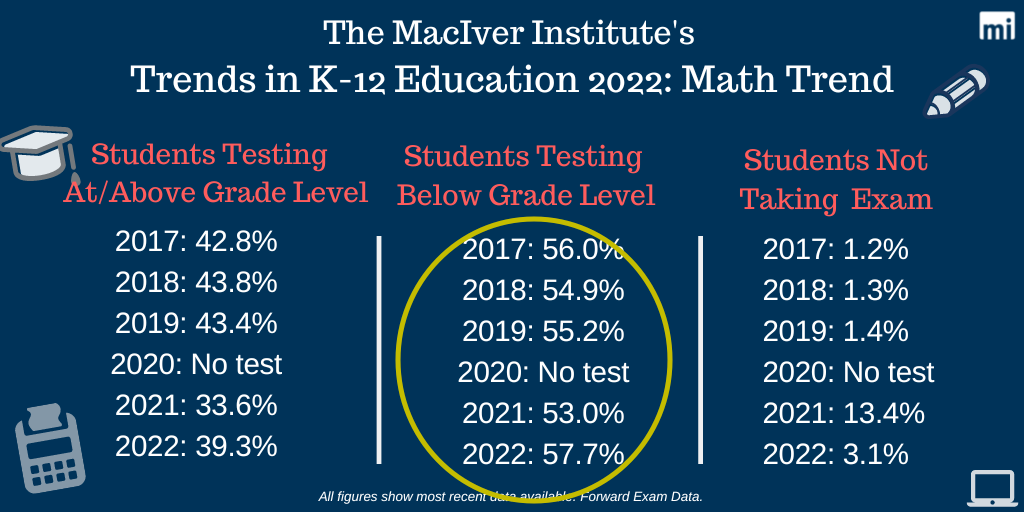

The state faces declining enrollment, increasing spending, plummeting achievement scores, and a wholesale attack by the education establishment on parental rights. We’ve seen from Superintendent of Public Instruction Underly specious charges that the legislature is “starving” schools, that we are facing a “fiscal cliff” and that there is a shortage of teachers, and absolutely no attention to the fact that our schools are failing students at every level, in every district.
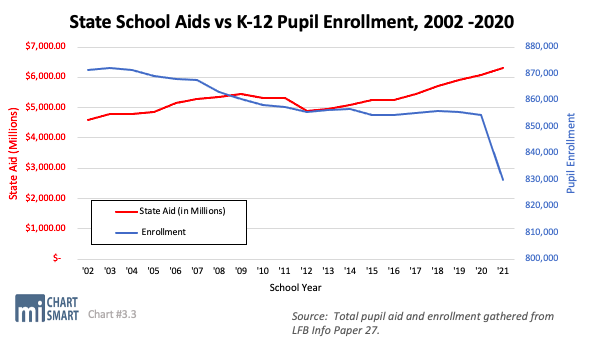
Underly’s recent State of Education speech laid out her priorities, and academic achievement was not among them. She never mentioned learning loss, but she said pronoun usage was vital. Underly referenced racism, but not math; libraries, but not the inability of the majority of students to read at grade level. Underly clearly revealed her priorities for our kids, and they do not include basic subject matter proficiency.
Numbers from Underly’s Department of Public Instruction show less than one-third of students are proficient in English or math. Sixty-four percent of fourth-graders are not proficient in reading. Wisconsin also ranks dead-last in reading achievement among Black students. While Hispanic students dropped from first in the nation to 28th while White students fell from sixth to 27th in English or math.
The claims of school district lack of funds have made some headway in the legislature, as part of an apparent broad willingness to spend more on local levels of government. But the main job of the legislature is how to refocus schools on academics, and to require accountability and transparency for taxpayers and parents, not dumping money into a system that has abandoned the mission of educating children.
Elections
What to watch: Local election reform efforts and spring turnout
The 2023 spring elections will decide not just a host of local offices – municipal and school board members who control billions of spending as well as the focus of our entire education system – but also a seat on the Wisconsin Supreme Court that will determine the conservative-liberal balance of the court. Another crucial election in a state where the governor has vetoed nearly every election integrity bill and members of the elections commission deliberately disseminate false information.
It’s unlikely that the governor will change his mind about any of the legislature’s imminently reasonable election reform bills he already vetoed, but with new chairs appointed to run both the senate and assembly committees dealing with elections, we should expect renewed effort in this area. We look to see new legislation providing transparency and accountability from local election officials, as well as a continuing focus on the real problems that have undermined election integrity and fairness.
Based on the Supreme Court candidate forum held this week, that election will be a dogfight. We can expect to see massive outside expenditures in the battle for ideological control of the court. The differences between the candidates on the right and left has perhaps never been more stark. The liberal candidates embraced judicial activism, using the bench to right injustices, and unabashedly expressed their position on issues – like redistricting and abortion – that will almost surely come before the court. The conservative candidates stuck to the oft-heard mantra of “applying the law as it is written and not as they might wish it to be,” as well as the duty of the legislative and executive branches to change laws to reflect the will of the voters. See our coverage in the thread below:
(1/14) At the Wispolitics State Supreme Court candidate forum January 9th, 2023… pic.twitter.com/A7MIR9qY8l
— MacIver Institute (@MacIverWisc) January 9, 2023
As we’ve seen, particularly in recent years, court decisions have an incredible impact on the people of the state. It’s important for people to vote in the spring elections to assure the court has a new member that respects our system, and their place within it.
Turnout will be key, as it generally is in our statewide races, but particularly in the lower-participation Spring contests. Any enthusiasm gap matters, so the February primary will give strong clues as to which side has an edge.
With so many election integrity measures left on the table because of gubernatorial vetoes, it is not just important for people to vote, but to do what they can to participate in the election process, serving as poll watchers or election day workers, to make sure that elections are conducted according to the law, and every lawfully cast vote counts, and has equal weight.